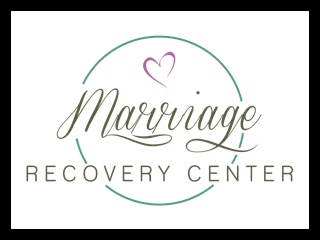Are You Hiding Behind Blame?

At the first "Weekend By the Sea" women’s retreat I sat with six women. While each had unique stories, there were definite themes. Most came feeling resentful, sad and alone, hoping to find answers to lingering questions about why their relationships weren’t working.
The first day and a half most of the women seemed stuck in feeling sorry for themselves. Suddenly, one woman blurted out.
“I get it,” Jackie said, a fifty-five year old woman who had flown to Seattle from the East Coast to participate in the women’s codependency retreat. “Before I learned about codependency, and my part in the dysfunctional dance I’m doing with my husband, I was blaming everything on him. Now I’m not going to be able to hide behind that anymore.”
The other women participating in the women’s codependency workshop looked at her in disbelief.
“What do you mean?” another woman asked angrily. “Our husband’s have caused us a lot of pain. I’ve suffered for years from my husband’s bad behavior.”
“No doubt,” Jackie said. “I have wanted to believe it’s all my husband, and I guess I’m beginning to look at things differently. I don’t think blaming him is fair anymore. I convinced myself for years that all my sadness had to do with him not meeting my needs. But I’m really getting it now. I don’t do all that well meeting my own needs, and I resent his needs.”
The room was quiet. Facilitating this women’s retreat had been a challenge for me. I wasn’t sure how well everyone would handle looking at their relationship to their self, a topic rarely talked about in Christian circles. But, believing it was time to venture into this professional territory, I broke the silence.
“We talk a lot about others taking advantage of us,” I said, “but how can they do that without our permission? We talk a lot about holding our own, but what does that mean? Holding our own what?”
The women nodded and Jackie began speaking again.
“Like I said,” she continued, “it’s a lot easier to blame Blake (her husband) for everything. But, doing that just keeps me resentful and besides, I don’t have to look at my stuff. It’s much easier to be angry with him for our problems than it is to look at my poor boundaries and how I settle for things I don’t really want to settle for.”
“Like what?” another woman asked.
“Well,” Jackie began slowly. “Where to begin? What I’m learning here is that I must hold onto my own truths. I must stand firm with my convictions. I don’t do that. I let others, including Blake, talk me out of what I think and believe. I must prayerfully consider what is right for me, and then discuss how to meet each other’s needs. I get thrown off track so easily. I’ve got so much work to do.”
“Yes, yes,” Delores, another woman said. “I’ve caught myself talking a lot about my husband here, and you’ve had to get me back on track, talking about my lack of convictions and clear boundaries.”
The group began responding to Jackie’s words, clearly making an impact.
“Everyone thinks I’m so sweet,” Claire said. “I’m really tired of everyone thinking I’m so sweet when inside I’m seething. Everyone knows I’ll do anything for anyone, but won’t ask anyone to do anything for me. Everyone thinks I’m happily married when I’m miserable. This is crazy!”
“Holding our own doesn’t have to be an angry stance,” I suggested. “We don’t have to respond to bad behavior with equally bad behavior. Scripture tells us to ‘stand firm.’ I think that can apply to us standing firm for what we believe to be right and true.”
Kate nodded demonstrably, and asked if she could share a Scripture.
“Therefore take up the whole armor of God, that you may be able to withstand in the evil day, and having done all, to stand.” (Ephesians 6:13)
“Yes,” I said. “We don’t need to apologize or shrink back from standing firm for the truth. And, we can know the truth by knowing Scripture. Often, however, we cave in to the agendas of others. Then we resent them, when all the while it is largely our own lack of clear boundaries.”
“So,” Jackie said. “Now that I know I’m blaming Blake for everything, what are some things I can do to live with integrity?”
I shared some thoughts on the matter.
First, be clear about your own convictions. You cannot know what you must stand firm about until you know what is important to you. While this may sound simple, it can actually be a challenging process of reflection and consideration.
Second, create a space within yourself to hold these truths. Like a precious treasure, you must “guard your heart.” (Proverbs 4:23) Don’t cast your truths about without care. These are invaluable truths about what you need to take good care of yourself.
Third, cultivate a healing community. We all need friends who will help us nourish our truths. These friends must be nurturing, but also willing to confront us when we slip into playing the victim. Our healing community must also include a strong and vibrant relationship with God who gives us wisdom.
Fourth, practice setting boundaries and speaking forth our inner convictions. We develop self-confidence with practice. We often start small, working our way up to the bigger decisions that may have a profound impact on our lives.
Finally, celebrate victories. While we certainly need a healing and supportive community, and a nourishing relationship with God, we need a healing and nourishing relationship with ourselves as well. Celebrate small and large steps of progress, watching our decision-making skills grow.

Originally published July 21, 2011.







